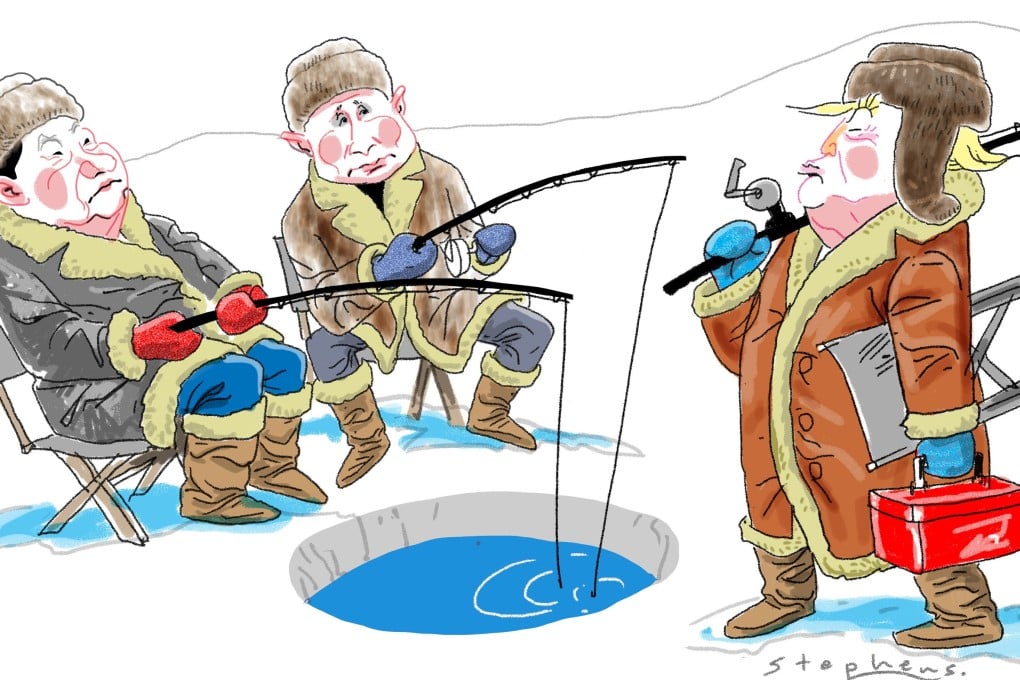Advertisement
Opinion | Arctic ambitions of China, Russia – and now the US – need not spark a cold war
- While competition over access to resources is inevitable, security concerns aside, the three share many common interests. Recent US investment in the Arctic to counter Chinese and Russian influence heightens the need for partnership
Reading Time:4 minutes
Why you can trust SCMP

The United States has always been a reluctant power in the Arctic. It has invested very little into its Arctic resources – with no real ports along Alaska’s Arctic waters, little military presence, and insufficient diplomatic engagement. However, in February, the US government allocated a total of US$675 million in funding for new icebreakers, which military leaders deem vital for competing with Russia and China in the Arctic.
Advertisement
When US Secretary of State Mike Pompeo visited America’s Nato ally, Iceland, on February 15, he also discussed China and Russia’s growing presence in the Arctic. It seems that the US has begun to shift its Arctic policy, now aimed at countering the growing influence of China and Russia in the high north.
Russia has reopened some of its abandoned military installations from the Soviet era and placed new facilities and airfields in its northern territory. It has also established a string of seaports along its northern coastline. In addition to its military presence, Russia plays a leading role in infrastructure development in the Arctic. Moscow has a five-year plan for Arctic investments in regional infrastructure and natural resource development.
In its Arctic policy white paper, issued in early 2018, China expresses a desire to work with all parties to build a “Polar Silk Road” by developing the Arctic shipping route. It encourages its enterprises to participate in infrastructure construction for these routes and to conduct commercial trial voyages in accordance with the law, to pave the way for regular commercial operations. Chinese investments in mining and energy industries are taking place in Iceland, Greenland, Russia and beyond. It has taken an active role in intensifying research in both the Arctic and Antarctic and maintains an active polar research programme.
The rapid expansion of Russian and Chinese activity in the Arctic in recent years has been noted by the US government. The US State Department’s International Security Advisory Board released a report noting China's cooperation with Russia in the development of natural gas deposits in the Yamal Peninsula. The report suggested that the impact of Sino-Russian cooperation on Arctic regional security has not attracted enough attention from the US government.
Advertisement

Advertisement
